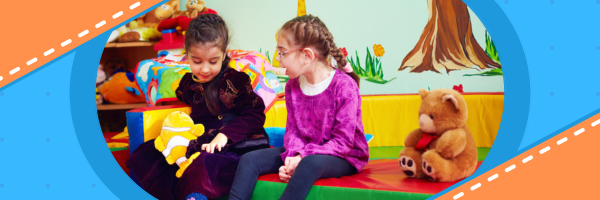
By Nahoma Presberg, MS, BCBA, NYS-LBA
One of the core characteristics of autism spectrum disorder is an abnormal approach to social skills. The DSM specifically uses the language “persistent deficits in social communication and social interaction across multiple contexts.” While this may seem straightforward, social skills are an incredibly complex concept to dive into. There are considerations like culture, age, status, and personal preference that all contribute to how people choose to interact in our social world.
Social skills are also incredibly important! Being able to effectively interact with the world around you impacts virtually every other aspect of life. When we’re thinking about teaching people social skills, there can be a lot of pressure to get it right. Let’s take a look at some recommendations to help re-imagine teaching social skills from a neurodiversity-affirming perspective.
Ways to teach social skills in ways that are affirming:
- Include the client in decision making. We might teach someone a social rule and the impact that it might have to not engage with that social rule. Then we can help that individual think about times when it might be important to follow that rule and times when it is less important. Small talk is a great example of a social norm that may not always be necessary, but can be a useful skill in the right circumstances.
- Lead with consciousness about mental health. Self-image can be so challenging, especially when you’re closely examining how people interact with each other. It can feel alienating to know that you’re not clicking socially and that there’s some secret code that everyone else seems to know. Be kind!
- It’s better to have one really good friend than 10 friends who don’t actually really like you. Prioritize quality relationships and helping your client find people who appreciate them for who they are instead of helping them fit in as a less authentic version of themselves.
Ways to teach social skills that are not affirming:
- Over-emphasis on social scripts. Social scripts serve a function in a number of specific instances. However, genuine social skills come from a place of authenticity. Be conscientious about when they are useful, and when they might actually get in the way.
- Forcing specific leisure skills on someone because of their age, gender, etc. It can be useful to have hobbies in common with the peers around you. However, if it’s not a genuine interest, it is going to be difficult to use that hobby to develop genuine friendships anyway.
- Over-emphasis on the reduction of quirky behaviors in the interest of someone “fitting in.” It is true that sometimes certain behaviors can be off-putting in public and may impact someone’s ability to seamlessly navigate a social environment. However, this should not be the primary focus of a social skills program.
These strategies are just the tip of the iceberg. Autistic individuals have been providing a lot of feedback to therapists in recent decades about what supports feel useful and which ones feel alienating. As you continue to learn about social skills programming, I encourage you to learn directly from the people who are receiving the therapy. Happy programming!
About the Author
Nahoma Presberg, MS BCBA NYS-LBA, is a Board Certified Behavior Analyst. Nahoma obtained their master’s degree at the University of Rochester in Human Development. They have been working with clients in their homes for the past 6 years but has over a decade of experience supporting children with developmental disabilities. Nahoma is passionate about neurodiversity affirming care and thoughtful programming that helps every client thrive.
For more information about Nahoma, you can visit their website at https://www.nahomapresberg.com/.
